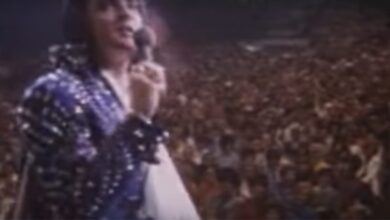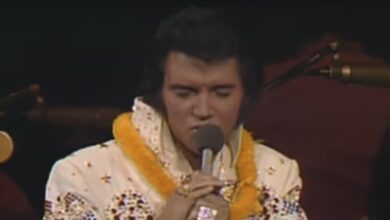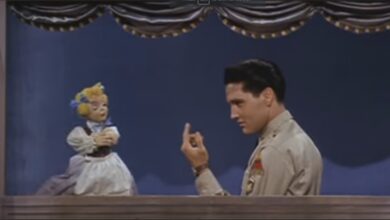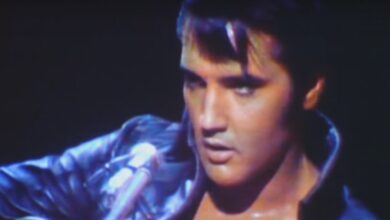At fifty years old, this Elvis classic still outshines contemporary music
“Can’t Help Falling in Love” stands as one of Elvis Presley’s most iconic and enduring songs, epitomizing the timeless nature of love and romance. Released in 1961 as part of the soundtrack for his film “Blue Hawaii,” the song quickly ascended the charts and cemented itself as a classic in the annals of popular music. Its enchanting melody and heartfelt lyrics resonate with listeners across generations, making it a perennial favorite at weddings and romantic occasions.
The song opens with the memorable lines, “Wise men say only fools rush in / But I can’t help falling in love with you,” capturing the essence of being overwhelmed by love, despite knowing the risks involved. This sentiment is further echoed in the chorus, “Take my hand, take my whole life too / For I can’t help falling in love with you,” which beautifully articulates a sense of devotion and the willingness to surrender entirely to love. Elvis’ smooth and soulful vocals breathe life into these words, infusing them with an emotional depth that transcends time.
Elvis’ rendition of “Can’t Help Falling in Love” is marked by its simplicity and elegance. The arrangement features a gentle piano accompaniment that gradually builds to a powerful crescendo, showcasing the richness of his voice. The song’s structure and progression create a sense of anticipation and climax, mirroring the emotional journey of falling in love. This combination of lyrical and musical elements contributes to the song’s lasting impact and universal appeal.
Over the years, “Can’t Help Falling in Love” has been covered by numerous artists, each bringing their unique interpretation to the classic. One of the most notable versions is the reggae rendition by UB40, released in 1993, which brought the song to a new audience and reached the top of the charts in several countries. Despite these varied interpretations, Elvis’ original remains the definitive version, beloved for its authenticity and emotional resonance.
The song’s influence extends beyond the realm of music, having been featured in numerous films, television shows, and commercials. Its presence in popular culture underscores its enduring relevance and the deep connection it fosters with audiences. Whether as a backdrop to a romantic scene or a central theme in a storyline, “Can’t Help Falling in Love” continues to evoke strong emotions and memories, making it a staple in the soundtracks of many lives.
Elvis Presley, often referred to as the “King of Rock and Roll,” was born on January 8, 1935, in Tupelo, Mississippi. His career took off in the mid-1950s, and he quickly became a cultural icon known for his distinctive voice, charismatic stage presence, and innovative blending of various musical genres, including rock, country, and gospel. Throughout his career, Elvis released numerous hit songs and starred in several successful films, leaving an indelible mark on the entertainment industry.
Elvis’ influence on music and popular culture cannot be overstated. He is credited with helping to shape the landscape of modern music, breaking down racial barriers in the process. His contributions to the genre of rock and roll have earned him a lasting legacy, and he remains a significant figure in the history of American music. Elvis’ ability to connect with audiences on a deep, emotional level is exemplified in songs like “Can’t Help Falling in Love,” which showcase his talent for conveying profound sentiments through his music.
The timeless appeal of “Can’t Help Falling in Love” lies not only in its beautiful composition but also in its portrayal of universal themes of love and devotion. The song captures the essence of what it means to be in love, transcending cultural and generational boundaries. Its enduring popularity is a testament to Elvis’ artistry and his ability to touch the hearts of listeners worldwide. As new generations discover and embrace this classic, “Can’t Help Falling in Love” continues to be a beloved anthem of love and romance, a true testament to the enduring power of Elvis Presley’s music.



